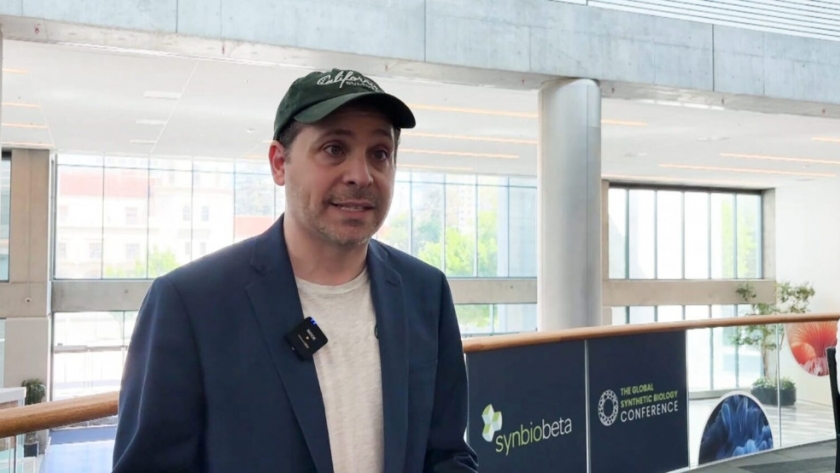
By Agroempresario.com
California Cultured, a biotech company based in Davis, California, is on the verge of transforming the cocoa industry. Led by CEO Alan Perlstein, the firm is developing an innovative approach to cocoa production using plant cell culture in reusable plastic bioreactors, aiming to reduce production costs and environmental impact while improving product purity and scalability.
The company, which recently signed a 10-year offtake agreement with Japan’s largest chocolate maker Meiji, is preparing to launch its first products by mid-2026. With construction already completed on its lab and office space, and a pilot plant underway in Sacramento, California Cultured is positioned to bring the first cell-cultured cocoa-based nutraceuticals to market.
At the recent SynBioBeta conference in San Jose, Perlstein explained that cost efficiency and scalability are critical for bringing cultured cocoa into the mainstream. Unlike traditional setups that rely on expensive steel bioreactors, California Cultured uses mass-producible, non-leachable plastic bioreactors, which can be reused thousands of times and sterilized efficiently.
“We’ve been testing these bioreactors for over two years with great success,” said Perlstein. “This represents a significant technological leap in biomanufacturing.”
These bioreactors also use an FDA-approved, low-energy sterilization process that minimizes downtime between batches and lowers production costs—an essential factor in the cost of goods (COGs) for large-scale food manufacturing.
California Cultured leverages de-differentiated plant cells, essentially turning cocoa cells into a stem-cell-like state. These cells are then manipulated using cell selection, metabolomics, and proprietary technologies to optimize them for consistent performance.
“Our cells are genetically stable and do exactly what we need them to do, time after time,” said Perlstein.
The result is a cleaner, purer form of cocoa that can be used in a variety of applications—without the contaminants found in soil-grown cocoa, such as lead and cadmium.
The company is currently working on the regulatory pathway for this new product. Perlstein says the team is exploring labels such as “clean cocoa” or “enhanced cocoa”, though the ultimate goal is to have it recognized simply as cocoa, given its flavor, compound profile, and nutritional properties mirror those of the traditional crop.
California Cultured’s initial commercial focus will be on flavanol-rich extracts, a cocoa component highly sought after in the nutraceuticals market. Flavanols—powerful antioxidants—make up a tiny fraction (0.1%) of conventionally grown cocoa, but plant cell culture allows the company to produce them more abundantly and consistently.
“Demand for flavanols is currently outstripping supply,” said Perlstein. “So we’re launching there first—for use in powders, drinks, supplements, and functional candy bars.”
Following the launch of flavanol extracts, the company will scale into full cocoa production using the same biotechnological platform. “We’ve built our entire regulatory and production framework so that we can pivot seamlessly from one to the other,” Perlstein added.
Originally, California Cultured considered working with co-manufacturers for scale-up. However, due to tariffs and global trade instability, the firm pivoted toward building its own internal infrastructure.
“Given our unit economics, we realized we could build our own facility for the same cost and on the same timeline as outsourcing production,” Perlstein noted. “This gives us more control over quality and intellectual property.”
Construction is underway at a new pilot production plant in Sacramento, with the goal of reaching commercial-scale production by Q2 or Q3 of 2026.
Interest in California Cultured’s technology has been intense, especially from the chocolate sector. Its flagship deal with Meiji marks the beginning of a broader strategy to partner with global chocolate producers, several of which are already in advanced negotiations.
“Even if we grow at 1,000% annually, we won’t come close to meeting demand,” Perlstein said. “The appetite for clean, consistent, and sustainable cocoa is massive.”
The firm sees this not only as a U.S. opportunity but also a chance to scale cocoa production globally, offering a more resilient and ethically produced supply chain to meet future consumption trends.
California Cultured is in the process of submitting a GRAS (Generally Recognized As Safe) dossier to the FDA, which it expects to complete by summer 2025. The firm anticipates a ‘no questions’ letter from the FDA by Q4 2025 or early Q1 2026.
Notably, the company’s cocoa products are non-GMO and made using 100% food-grade inputs, a combination that Perlstein believes will expedite regulatory approval.
Once approved, the company plans to launch in tandem with product development efforts by partners, focusing initially on ingredient sales, branded formulations, and co-labeled food products.
By producing cocoa in controlled environments with no soil contamination, no deforestation, and significantly lower water and energy use, California Cultured positions itself at the forefront of a sustainable future for chocolate.
“This is not just about technology,” said Perlstein. “It’s about creating food that is scalable, safe, and sustainable—for farmers, for producers, and for consumers worldwide.”
As the world’s appetite for chocolate continues to grow and climate challenges worsen, plant cell culture cocoa could emerge not just as a niche innovation, but as a mainstream solution to global supply chain challenges.
